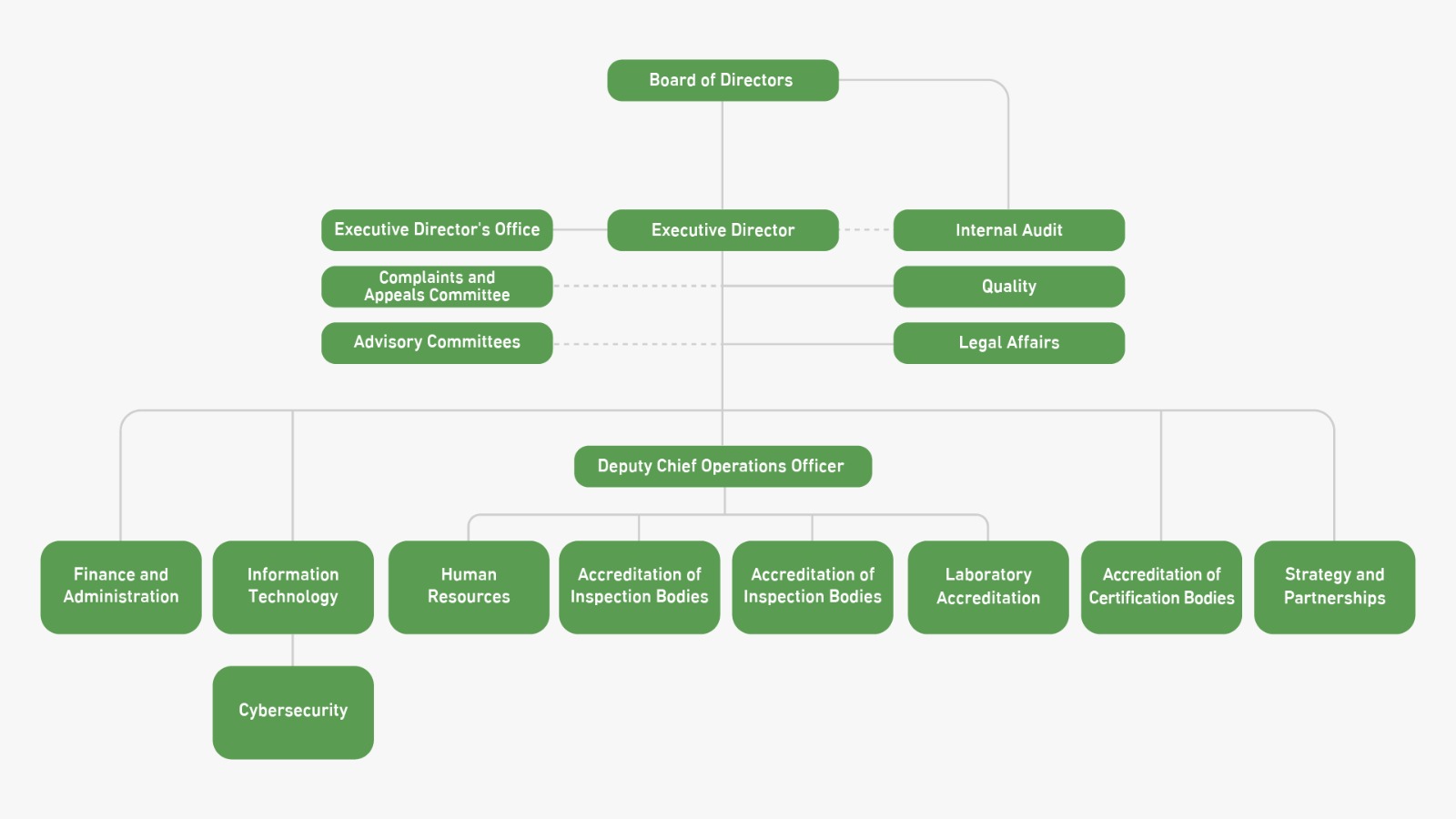
The Saudi Accreditation Center was established pursuant to Constitutional document No. (600) dated 10/22/1440 AH corresponding to(June 25, 2019 AD), according to which the former National Accreditation Committee (2004 AD) was transformed to a financially and administratively independent center, called the “Saudi Accreditation Center” to be a legal entity, to have financial and administrative independence, and to be organizationally related to His Excellency the Minister of Commerce.
The center is the national unique body officially designated to that provides accreditation services for conformity assessment bodies in the Kingdom and is responsible for improving their competence, in order to contribute to strengthening the quality infrastructure and supporting the Kingdom's economy and prosperity.
The center performs a set of tasks has several functions as defined in its regulations, such as accrediting conformity assessment bodies, providing training services and qualifying assessors in the field of conformity assessment, participating in international and regional organizations and bodies, mutual recognition of conformity assessment bodies’ accreditation certificates, and representing the Kingdom in international and regional organizations. Moreover, the center is responsible for coordinating with government agencies to provide data related to the field of conformity assessment, propose relevant regulations, perform studies and researches, organizing seminars and conferences and developing a database for the center's activity.
We contribute to enhance the quality infrastructure in Saudi Arabia to reach the top 10 globally by 2030
Providing trusted and innovative accreditation services in partnership with quality ecosystem stakeholders locally and globally, to increase competitiveness of the national economy and international trade

The quality infrastructure in the Kingdom of Saudi Arabia enjoys the support and attention of the wise leadership of the Custodian of the Two Holy Mosques King Salman bin Abdulaziz, and the supervision of His Royal Highness, Crown Prince Muhammad bin Salman bin Abdulaziz, may God protect them. It is indispensable for achieving the goals of the Kingdom’s Vision 2030 and promoting The Kingdom's economic leadership regionally and internationally. In line with the comprehensive development process in our dear country, the establishment of the Saudi Accreditation Center (SAC) came to be a solid and important foundation of the quality infrastructure system in the Kingdom. SAC contributes to upgrade the services of conformity assessment bodies, and raise the level of quality and adequacy of services and products, in order to preserve consumer health and environmental safety. SAC supports the national economy and prosperity; thus, the esteemed Cabinet Resolution No. (600) was issued on 10 1440 / 22 / to establish SAC and define its tasks and competencies. The year 2021 marked the launch of SAC’s five-year strategy, which is the roadmap for the future directions of SAC, through which it seeks to expand accreditation services according to the priorities of the national development and economic sectors.
The strategy included five main cornerstones represented in strengthening the quality infrastructure in the Kingdom, leadership in accreditation, regional and international recognition, professional development, and operational excellence. In order to enhance the Kingdom's global presence in the quality infrastructure system, SAC obtained the international recognition from the International Laboratory Accreditation Cooperation (ILAC) in 2021. This recognition is supported by the Kingdom's signing of bilateral and multilateral trade agreements that require international recognition of national quality infrastructure services. Thus, conformity certificates issued by conformity assessment bodies approved by SAC have become internationally recognized, which will have a significant impact on the economic level by raising the level of trade exchange, and the flow of goods and products to and from global markets .mWe look forward, God willing, to contributing to bringing the quality infrastructure system in the Kingdom of Saudi Arabia to that of the top ten countries in the world in 2030, by providing innovative and reliable accreditation services, in partnership with the authorities in the quality system locally, as well as promoting the national and international economy.We always welcome at SAC all opinions and suggestions which would help in developing the services and operation of SAC.

In Muharram, 1443 (August, 2021), the Saudi Accreditation Center (SAC) obtained a national achievement by signingthe multilateral recognition agreement from the International Laboratory Accreditation Cooperation (ILAC), in each of the following areas:
